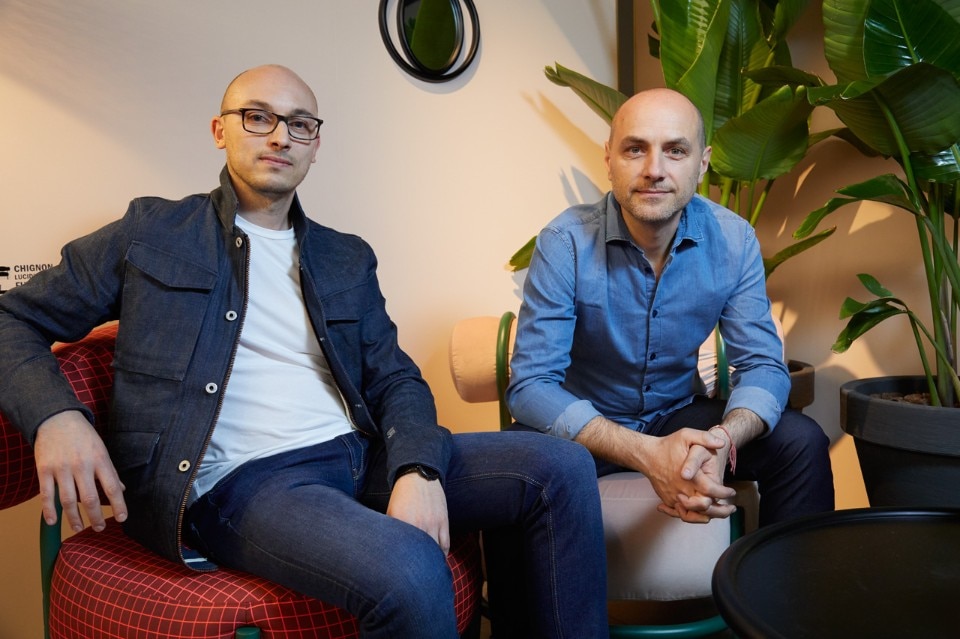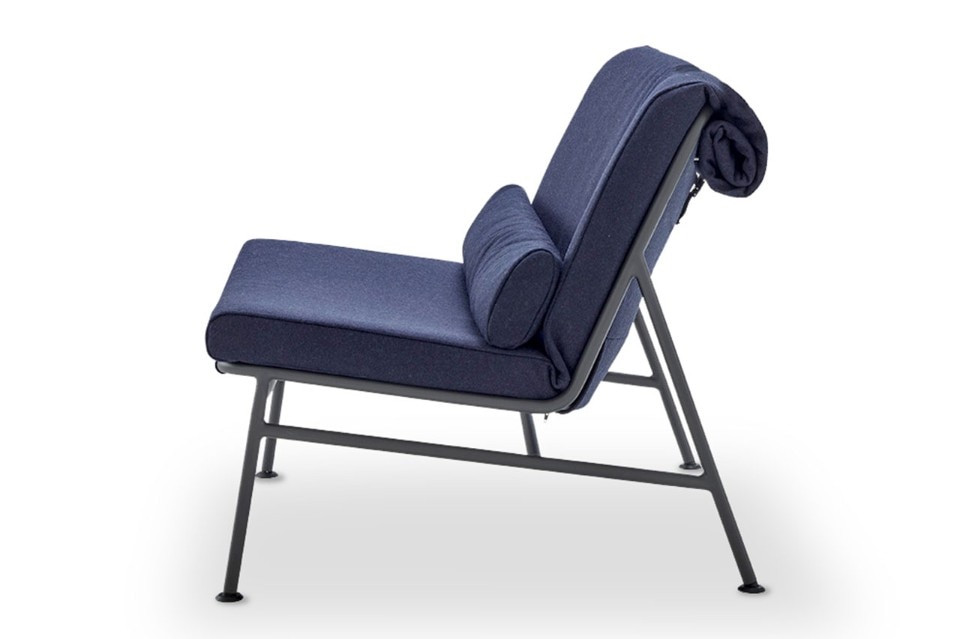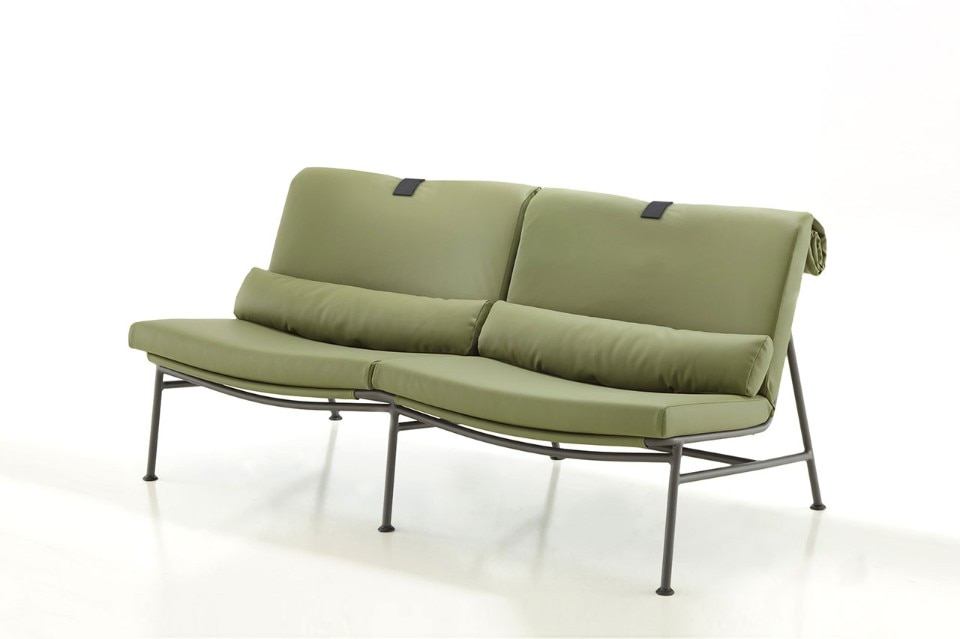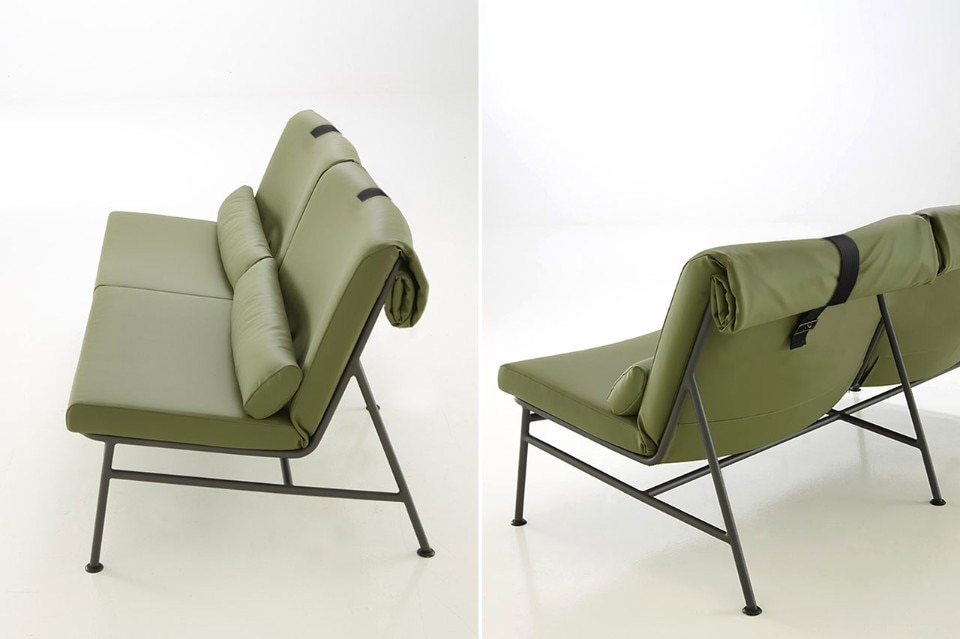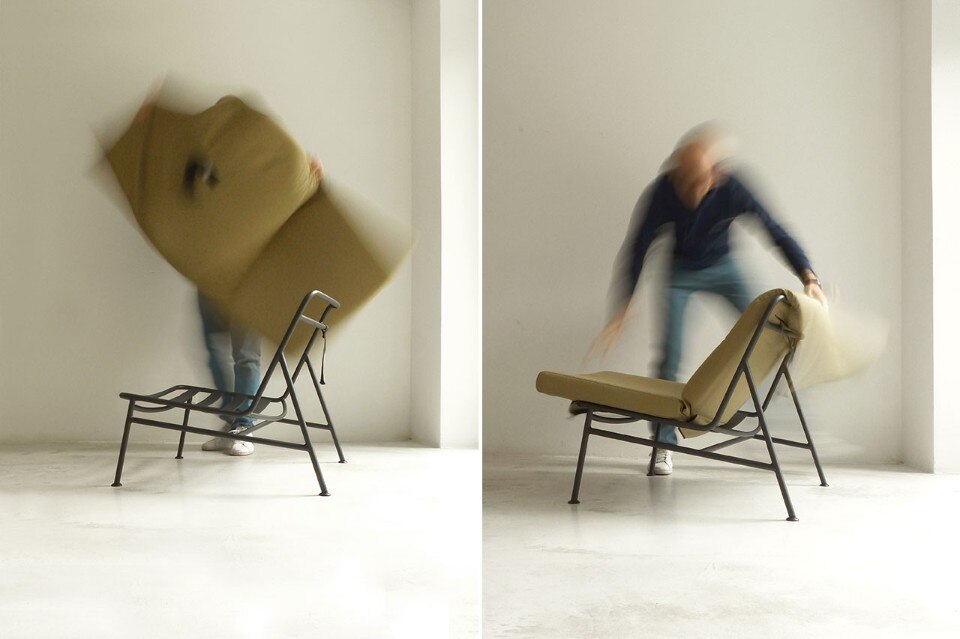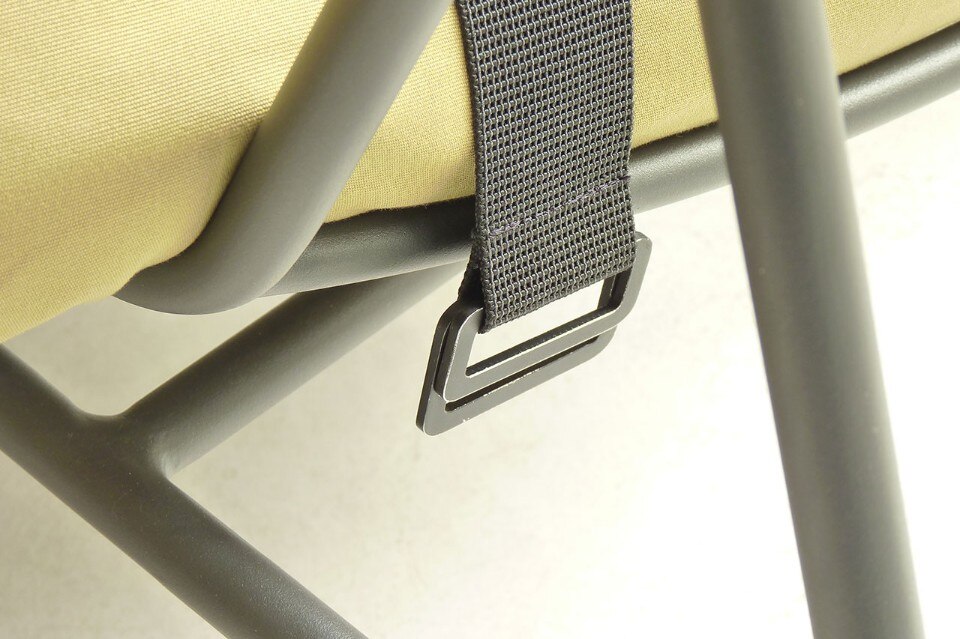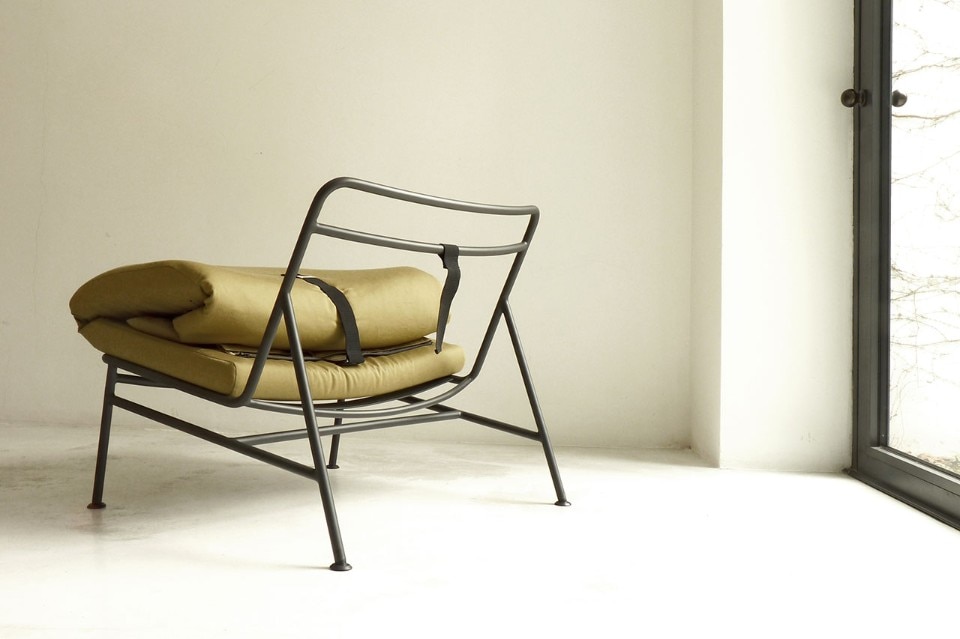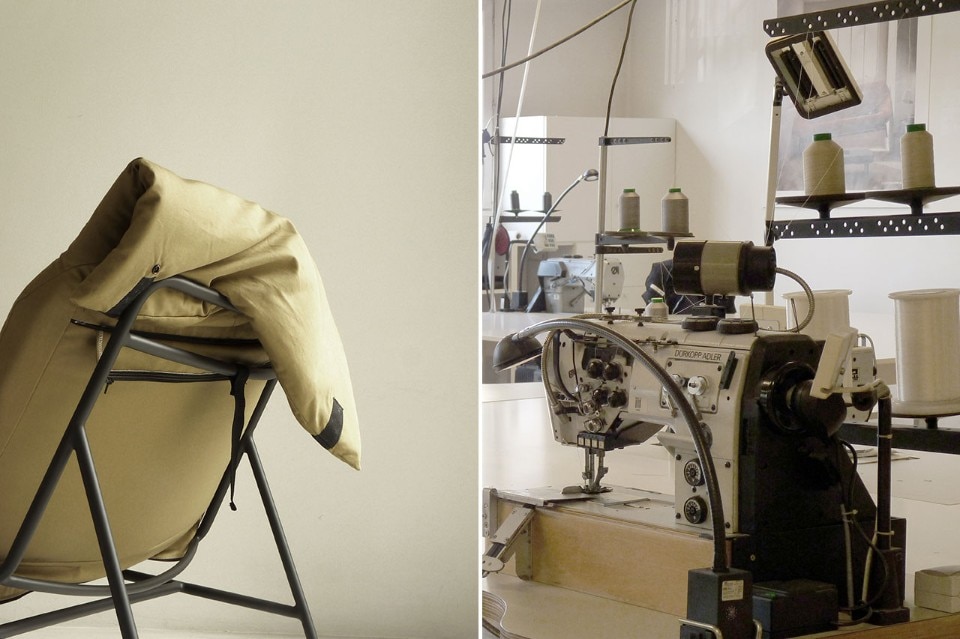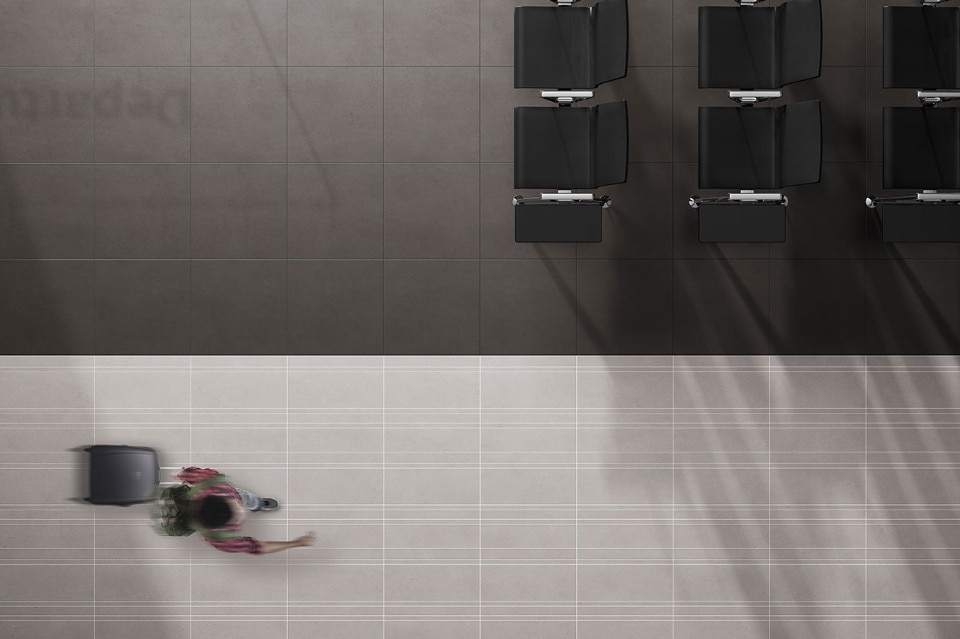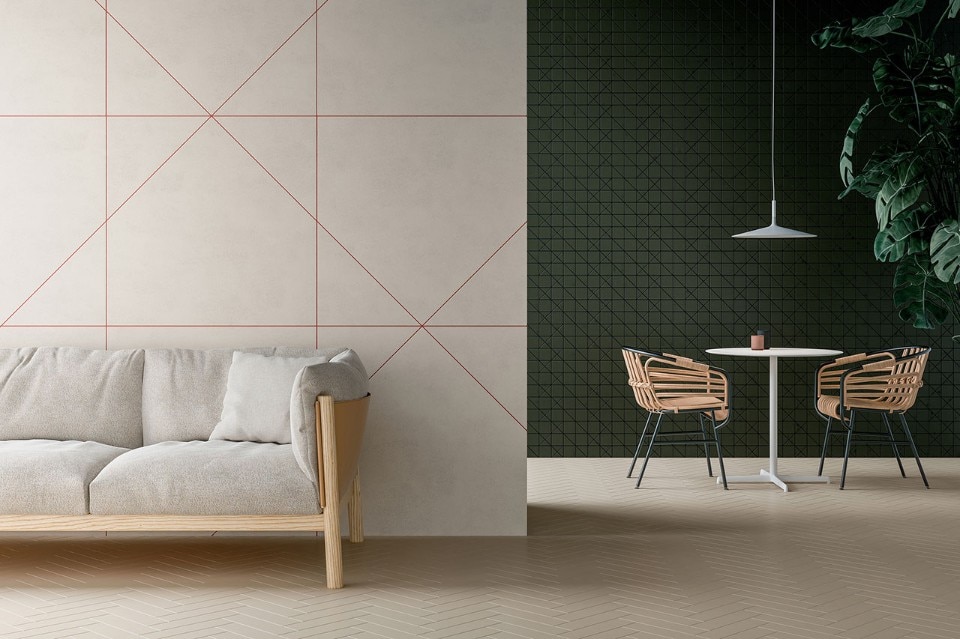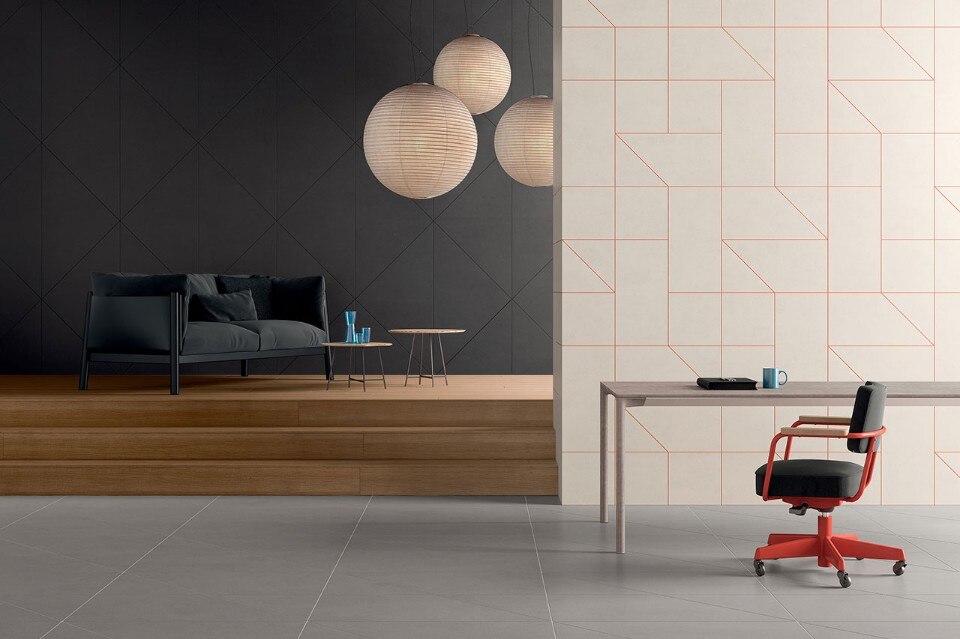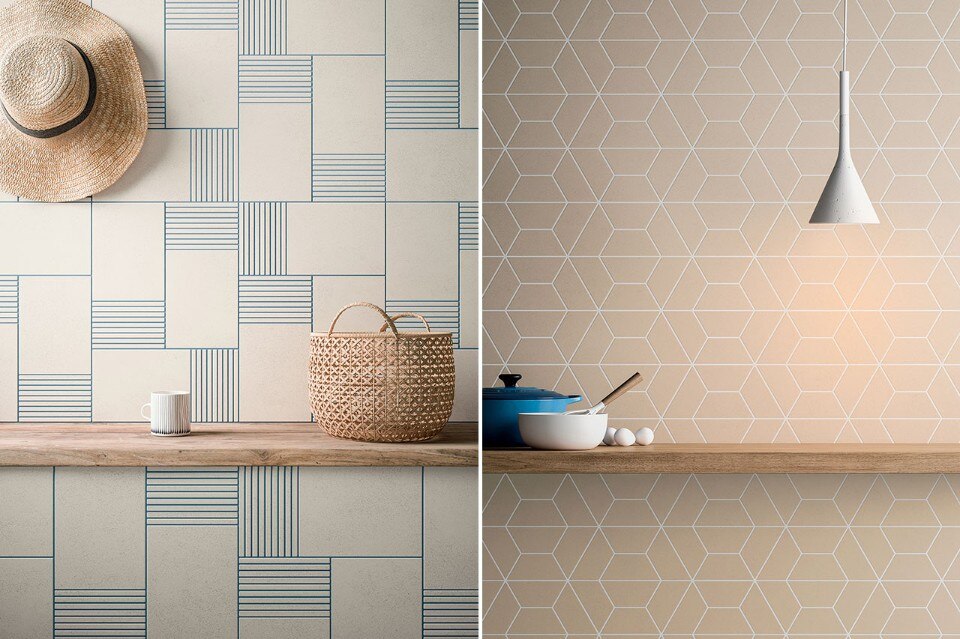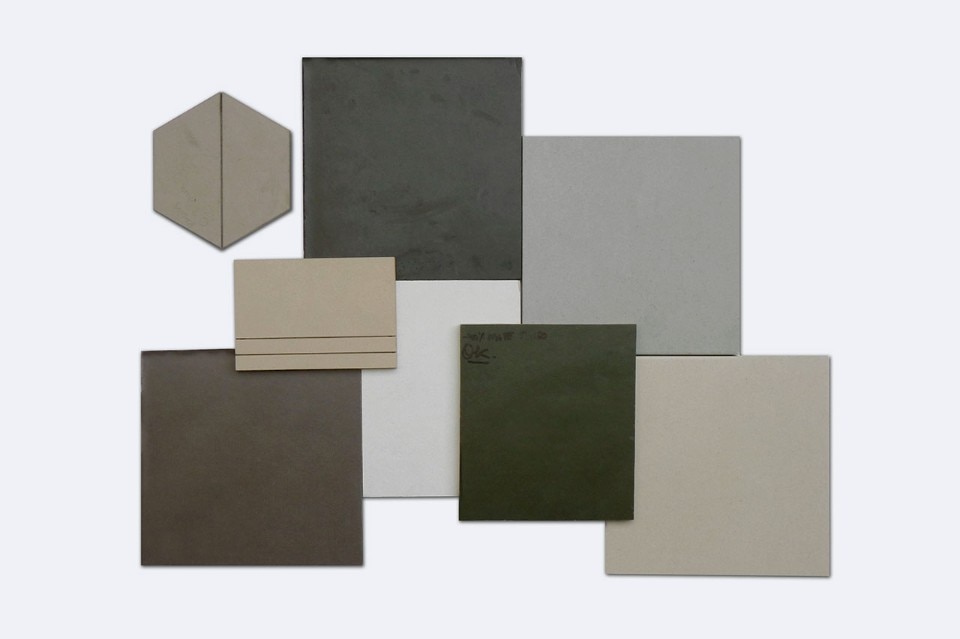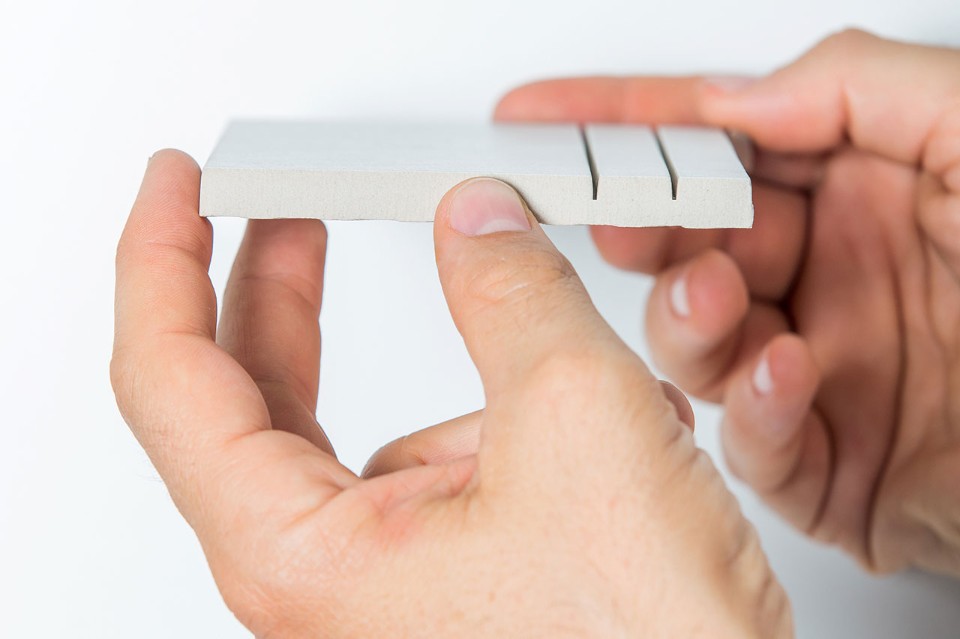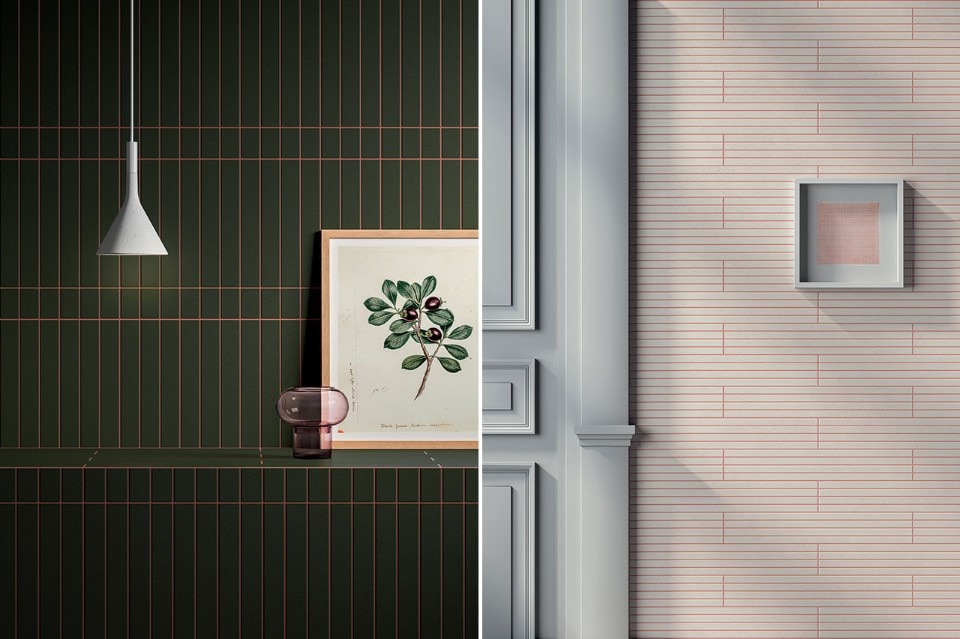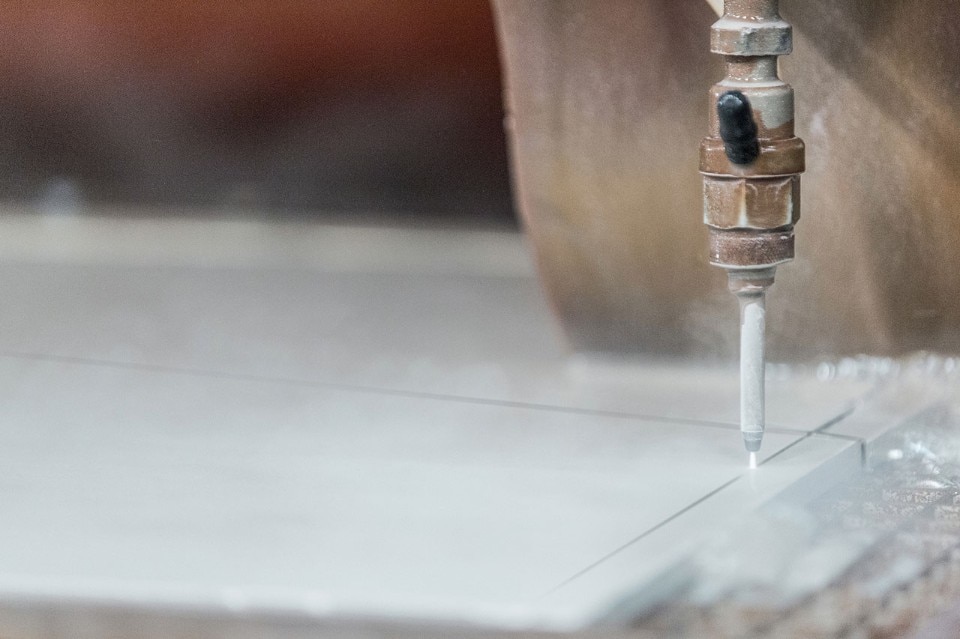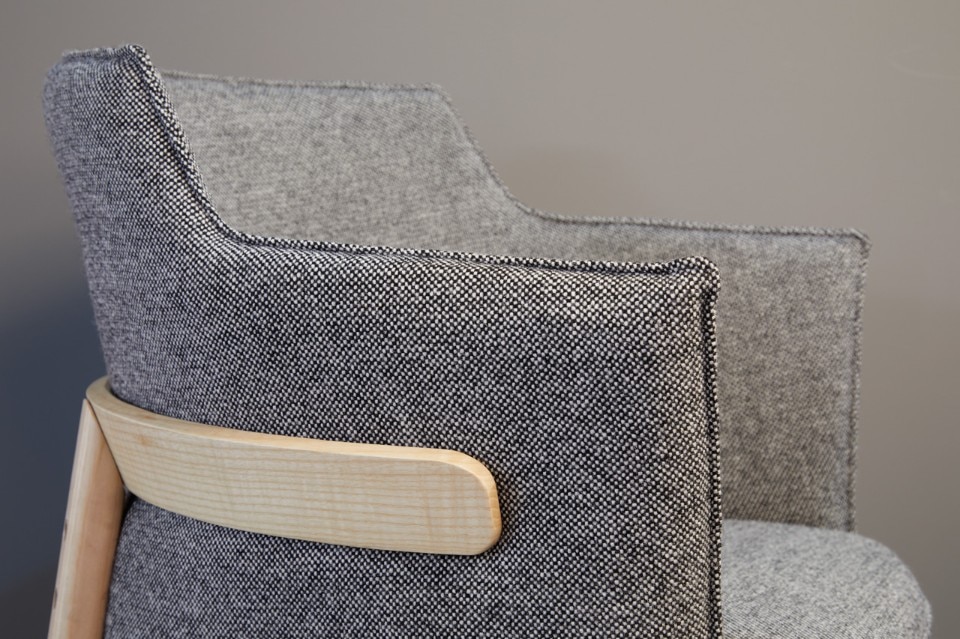
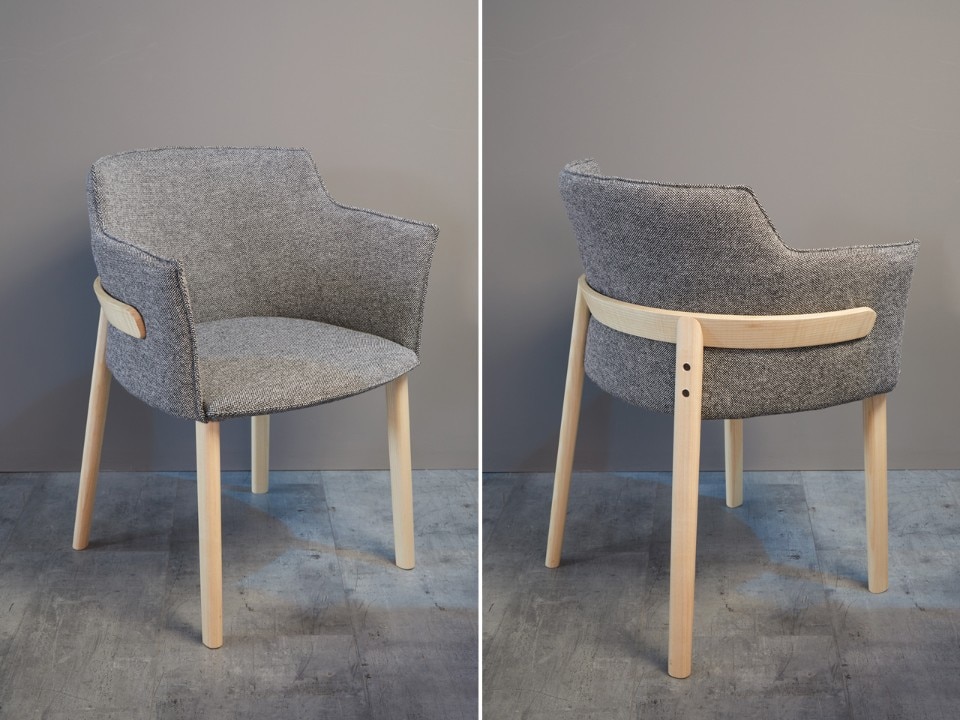
Maria Cristina Didero: What is your story?
LucidiPevere: Paolo, a diploma in applied arts, a few years spent working before returning to my studies. Luca, a few years younger, a diploma in science. We are both originally from the Friuli region, we met in Milan, in the “Aule Viganò” during our first years of studies. That was twenty years ago: at the time, industrial design courses were a new thing, still very much tied to architecture; there was a sharing of study areas, teachers and themes.
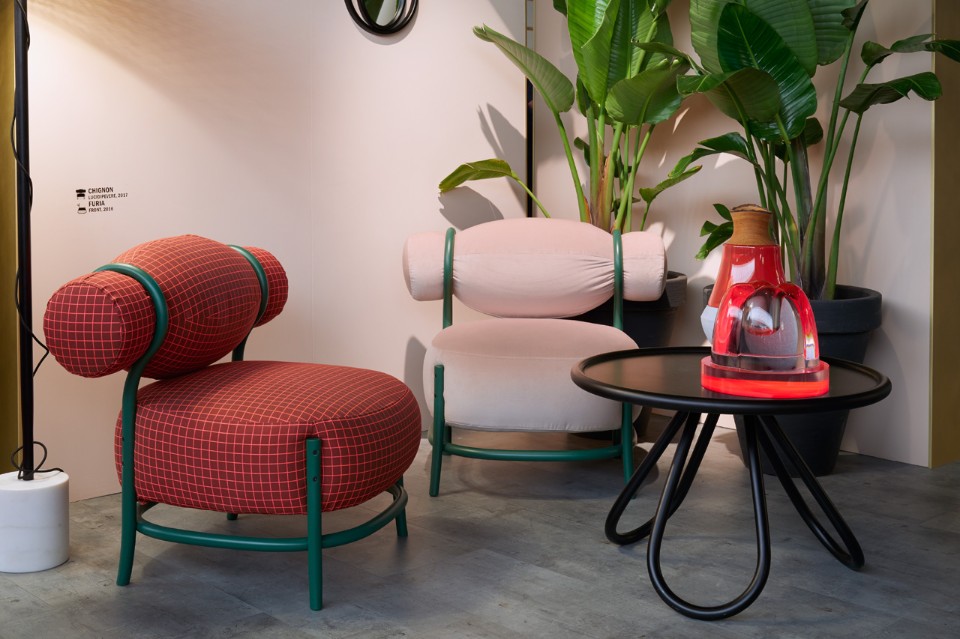
Maria Cristina Didero: Why design?
Paolo Lucidi: For better or for worse, I am not methodical by nature and I have difficulty in repeating the same things for too long. My working experience which preceded my university studies helped me to understand that eight hours are a lot if you do not love your job, a large proportion of life is wasted in this way. Thanks to this conviction, to my father’s work – an ex-state clerk who completely changed career and became a furniture merchant – and a natural interest in creativity which my brothers and I inherited from my mother and grandfather, I decided to continue my education according to the most logical evolution of the study of applied arts.
Luca Pevere: I have always had a passion for the visual arts. When I was little, I loved to draw and paint, learning by myself with various techniques such as tempera paint, pencils, oil paints, and to build various kinds of things, rummaging around in my grandfather’s garage, which was full of strange objects and old parts which had accumulated over a lifetime. When the time came to choose a subject for further education, I was so afraid that after five years of art school (the idea was to attend art school) I would become tired of drawing, that I completely changed direction and I enrolled in high school for scientific studies. I continued to cultivate my personal passion for the arts through selected courses and, during the fifth and final year of high school, a talented drawing teacher introduced me to industrial design, the perfect combination of art and rationality.
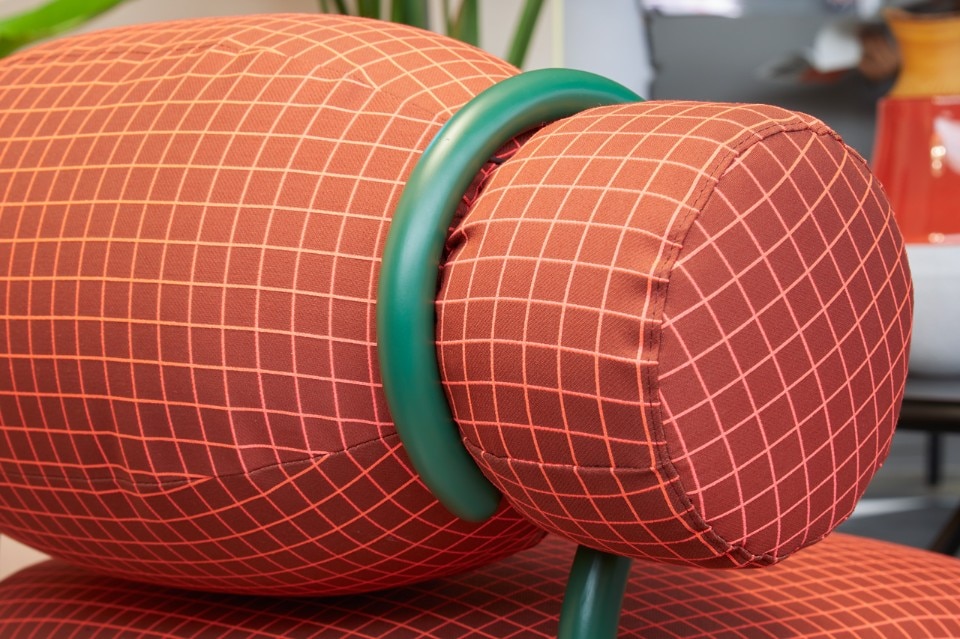
Maria Cristina Didero: How did you start, and what are your objectives?
Luca Pevere: We started in a modest way, but with great ambitions. Our ambition was, one day, to work with the best companies on the market. Our objectives have not changed and, ten years on, we are still working in this direction. Certainly, deciding which companies are the best is, in some senses, subjective. In our opinion it is not a question of size or turnover; the best companies are those that love their products, and who have innovation and a passion for change as their core values, while at the same time applying an almost religious consistency to what they do. At times, they are large-scale businesses, in other cases they are husband and wife teams. In any case, things went more or less like this: after years of studying in Milan, we stayed in the city for another four years to gain experience and learn the trade. Paolo at Piero Lissoni for a few weeks, and then with Marc Sadler for the remaining four years. Luca worked for Clino Trini Castelli, studying in more detail the themes of trends, with particular attention to the world of colours, finishings and materials, to then move on to Marco Ferreri. Thanks to these day jobs, we were able to work for important furnishing, fashion and automotive brands. The evenings found us in our respective crowded student apartments, drawing for small, little-known companies located principally in north-east Italy. Cutlery, vases, a few chairs or tables, simple components, restyling projects or graphic work. A difficult but very educational beginning. We still have a personal and professional relationship with some of these businesses. In 2006 we quit our respective jobs and set up on our own, taking the name LucidiPevere. At the end of the same year, we moved to the Friuli region, first to Udine and then, four years ago, to our current location in Palmanova.
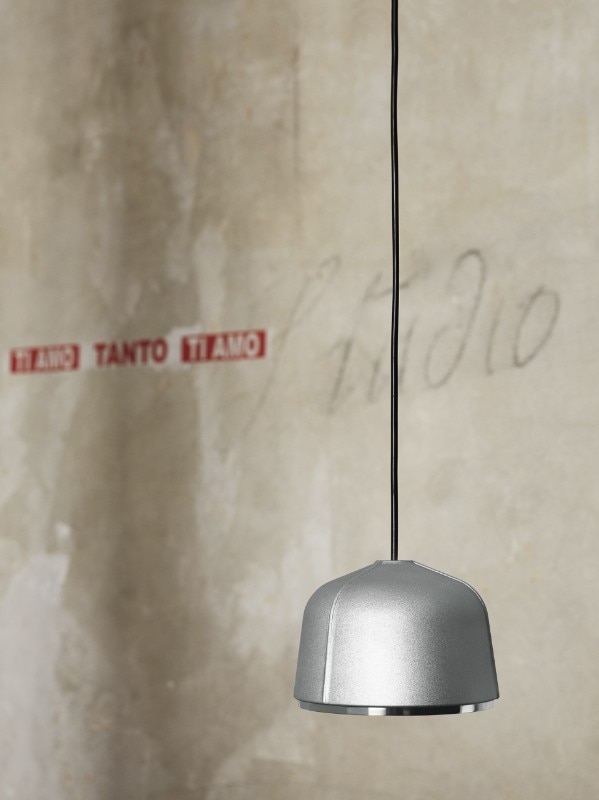
Maria Cristina Didero: What are your hopes for the future?
Luca Pevere: We hope to be able to continue to grow positively and in the right direction with the companies with which we have been working now for a number of years. We are also always interested in new encounters and new situations. Working in a new product sector with different people is always a source of enthusiasm and much curiosity, but at the same time it provokes just the right amount of uncertainty which leads us to grow and face new challenges.
Maria Cristina Didero: Is there a project that you would like to to work on in your professional lives?
Luca Pevere: The question refers to a professional “life”, so the dream should be important and ambitious. It would be wonderful to be able to design a product which truly lasts over time, so much so as to become an icon. I think this is the dream of any designer. However, we will have to wait another couple of decades to find out if we have been successful.
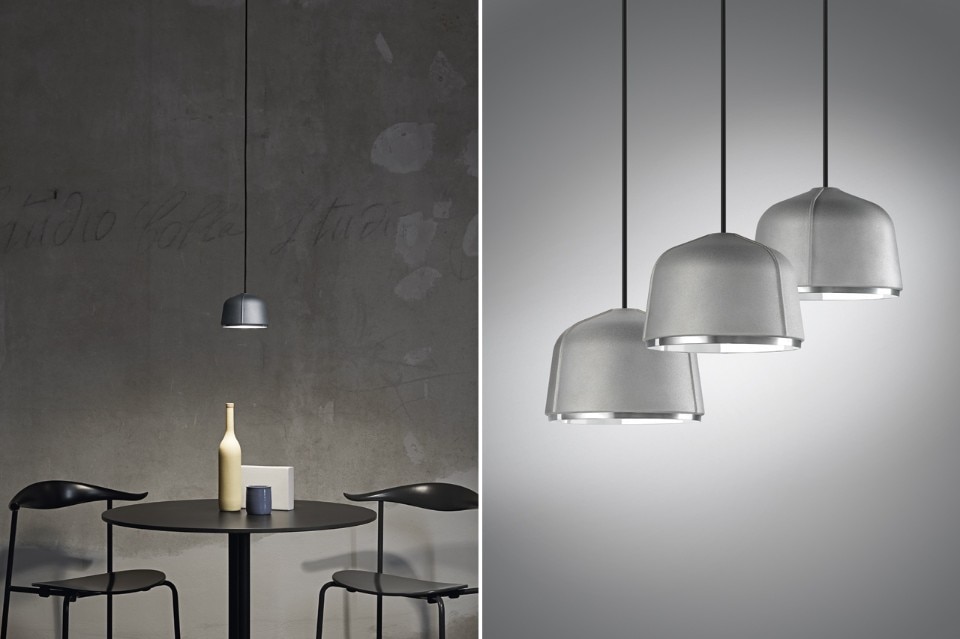
Maria Cristina Didero: A project that you would like to work on in your private lives?
Paolo Lucidi: Milan was the place where I not only discovered design, but where I also met my wife, a precious ally in the education and bringing up of our three children whose ages range from infant to adolescent, with all the relative problems involved. My private life project is to bring up three responsible and happy adults. Design, in comparison, is child’s play.
Luca Pevere: One which I have already achieved is a family. One which is still yet to be completed is to keep it as wonderful and united as it currently is! The great thing about doing a job that you love is that time literally flies, so over the space of a couple of Furniture Fairs (the measurement of time for designers), it is easy to miss the best years of one’s children’s lives. Another dream is that of seeing the world, something which, to some extent, I am doing thanks to my work, but which I would like to share with my family for the previously-mentioned reasons.
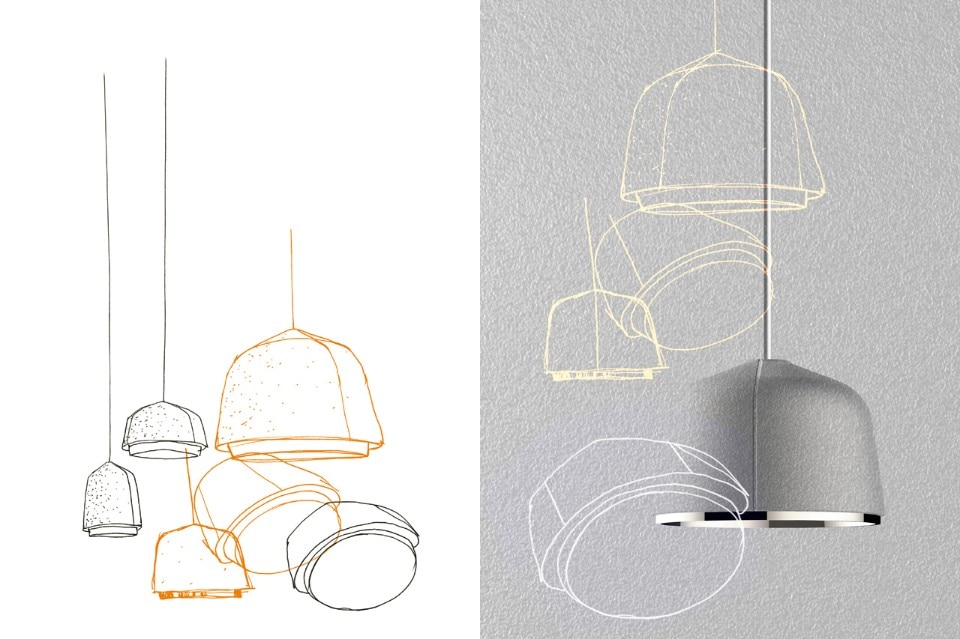
Maria Cristina Didero: Your approach to this discipline, your concept of design.
Luca Pevere: The projects on which we work do not have a pre-packaged language, whether they be hyper-minimal or decorative. We do not limit ourselves in this way, at the risk of appearing to contradict ourselves. We take our cue from a new aspect which captures our interest and which we often find in the material itself (the cement of Aplomb or the marriage of metal and cane of Raphia); in the technological process (the molten and spun glass of macramè, the extremely thin slice of wood in Alburni and the waterjet for Cava); starting with the use or function (Shoji and Molas); with the proportions or architecture of products such as Yak or Brezel; or, lastly, from the semantics of objects, as in Marsiglia and BackPack. What is important is the creation of something which is recognisable and new, which potentially lasts over time without betraying either the company or ourselves.
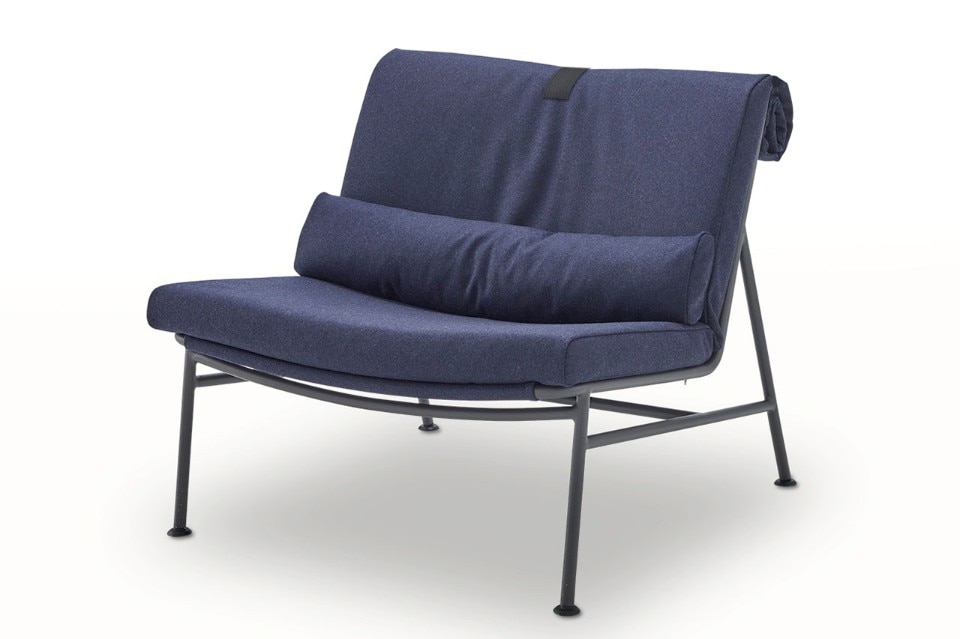
Maria Cristina Didero: What inspires you to keep going?
Luca Pevere: For one reason or another, there is a lot of talent out there and there is always – or almost always – something to learn, whether it be someone from the past or the present. For example, the “analogical” and shining objects by Castiglioni, and the clean and educational work of Mari and Munari. The rigour of Braun. The supernormal style of Muji or Morrison, the technical and stark German style or that of the French, softer and more poetic. The career and artistic experimentation of our compatriot Arieto Bertoja, and the material and formal balance of certain artistically-designed objects. This is what makes this work so wonderful. At times one becomes obsessed with a project because it seems like there is nowhere to go, and then you notice an object from the past which you had never seen before, or something more recent at a trade fair; they help you to understand how much there still remains to do, and how much has still not been said.
Maria Cristina Didero: What will you be presenting at the Milan Furniture Fair, your “designers’ clock”?
Luca Pevere: The products that we will be presenting for Gebrüder Thonet Vienna are diametrically opposed, once more confirming our idiosyncrasy with regards to a pre-fabricated language, allowing ourselves to be freely guided by that which pleases and inspires us. Chignon was not meant to be transversal, clean, simple and basic. On the contrary, it was meant to explore new language in the Gebrüder Thonet Vienna panorama. The company wanted a padded object, so we reduced to a minimum the curved wood and cane, keeping just a few, important elements; expanding instead on the padded aspect through a product which is almost a caricature. The result is a deliberately feminine chair which is not slim or filiform, but shapely and curvaceous. It is both modern and retrò at the same time. Pince, on the contrary, despite also being padded, is essential and compact. We worked on the concept of subtraction, removing the often-predominant presence of formal and technical stylistic aspects such as, for example, rings and arches, thus obtaining a timeless and essential object. The only, fundamental, nod to the Gebrüder Thonet Vienna world is a “C” in curved beechwood, a cornerstone of the project, which embraces the backrest, defining the characteristic trait of the chair. Another project which was recently presented in Paris is BackPack, a lounge armchair and two-seater sofa for the French brand Ligne Roset. The style of this project is informal and slightly technical, practical. The reference point is, in fact, camping, outdoor life and the casual use of this kind of product. A light and easy-to-move aluminium structure; wide and firmly-placed feet; unequivocally waterproof rubber fabric; wide and comfortable, it almost invites one to lie down. The detail which renders it recognisable comes from the way in which certain backpacks are closed: a wide strap closes the rubber fabric sack in a roll into which the two cushions are inserted, and then fixed to the frame.
Maria Cristina Didero: What does it mean to design together?
Luca Pevere: It means accepting criticism and often starting from scratch if it is clear that we are moving in the wrong direction. A dual point of view is more selective and strips aways many useless concepts; it helps to avoid dead ends; it provides extra impetus when the project seems to be nearing its conclusion. The downside is that between two entities, compromise is normal. One can hold firm, but balance is the true aspect to be preserved in designing in two. Every LucidiPevere product has been designed either by Lucidi or by Pevere. Each one has a father who has followed it until the end of the development process. Obviously, there is always participation from both of us, reciprocally, at times in a less pronounced way, at other times more significantly.
Maria Cristina Didero: How are your design ideas translated onto paper?
Luca Pevere: A Moleskine each, and lots and lots of sketches. At times the idea is so clear that we move directly to the computer, at other times a number of days of research are needed. Even in this aspect we differ a little: I use a more compact notebook because my sketches are almost always small and contained. I use drawing almost as though it were a mantra, and I keep designing the same form in an obsessive and repetitive way in order to bring my ideas to the surface. Paolo, on the contrary, has a larger Moleskine, because he loves life-size, and anlways uses a Bic. I always work with a disposable 0.05 black India ink pen.
Maria Cristina Didero: Routines?
Paolo Lucidi: Unfortunately yes. The opening hours of the studio do not vary that much. I would like to be able to manage my time in a freer, more varied and “itinerant” manner, but I realise that there are fundamental rules of life to be respected with regards to work and family. I try to keep the restless aspect of my character at bay by finding escape through the projects, business travel and running.
Luca Pevere: Yes. This is probably the biggest difference between Paolo and myself. As I am naturally very apprehensive with regards to working deadlines, due dates, appointments etc - but this also applies to life in general - as a defence I tend to take refuge in something fixed, solid, and stable. This is why my days are marked with precise moments, so well-defined as to often pass from one to another at the exact same moment every day. This is not something I plan, it just comes naturally, without my realising it, and perhaps this is why we have got on so well for more than twenty years, we compensate each other perfectly.
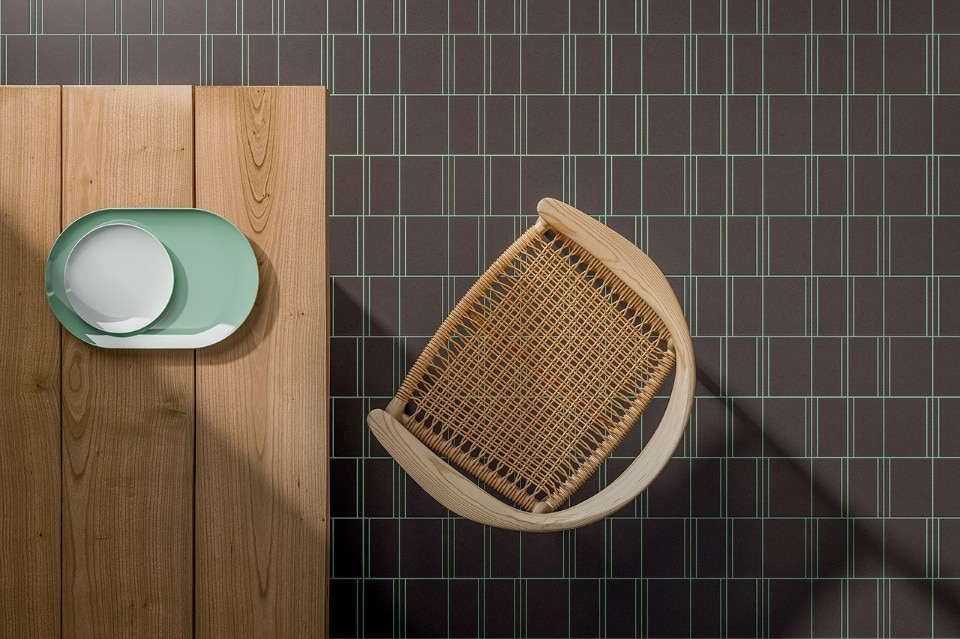
Maria Cristina Didero: What object who you have liked to have designed?
Luca Pevere: Just as we do not have a single maestro of which we are particularly fond, we do not have an object in particular either. But there are plenty that we love.
Maria Cristina Didero: Any particular books?
Paolo Lucidi: A book which I recently read and which I liked particularly is Otto montagne by Paolo Cognetti. I love the mountains, I love the slow pace of walking, exploring, the wide-open landscape. Here it is represented, free of rhetoric, through the story of two children, two friends, who have grown up and have chosen two very different lives: one sedentary, the other itinerant. Both are incomplete. It was a novel in which one can find something of themselves. I really liked it!
Luca Pevere: Its a difficult question, there are so many that I love and I have loved in the past. One which I have read more than once is Notes from underground by Dostoevsky, as well as Demian by Hesse, Lord of the flies by Golding, Snow by Fermine, The Notebook, The Proof, The Third Lie: Three Novels by Kristof, and many others; all books which, in a way, examine the complexity of the human soul.
4–9 April 2017
LucidiPevere
Chignon Lounge+Pince Chair
Gebruder Thonet, Fiera Rho-Pero, Hall 20, Stand D07
Arumi Collection
Foscarini, Fiera Rho-Pero, Hall 11, Stand A19-B18


